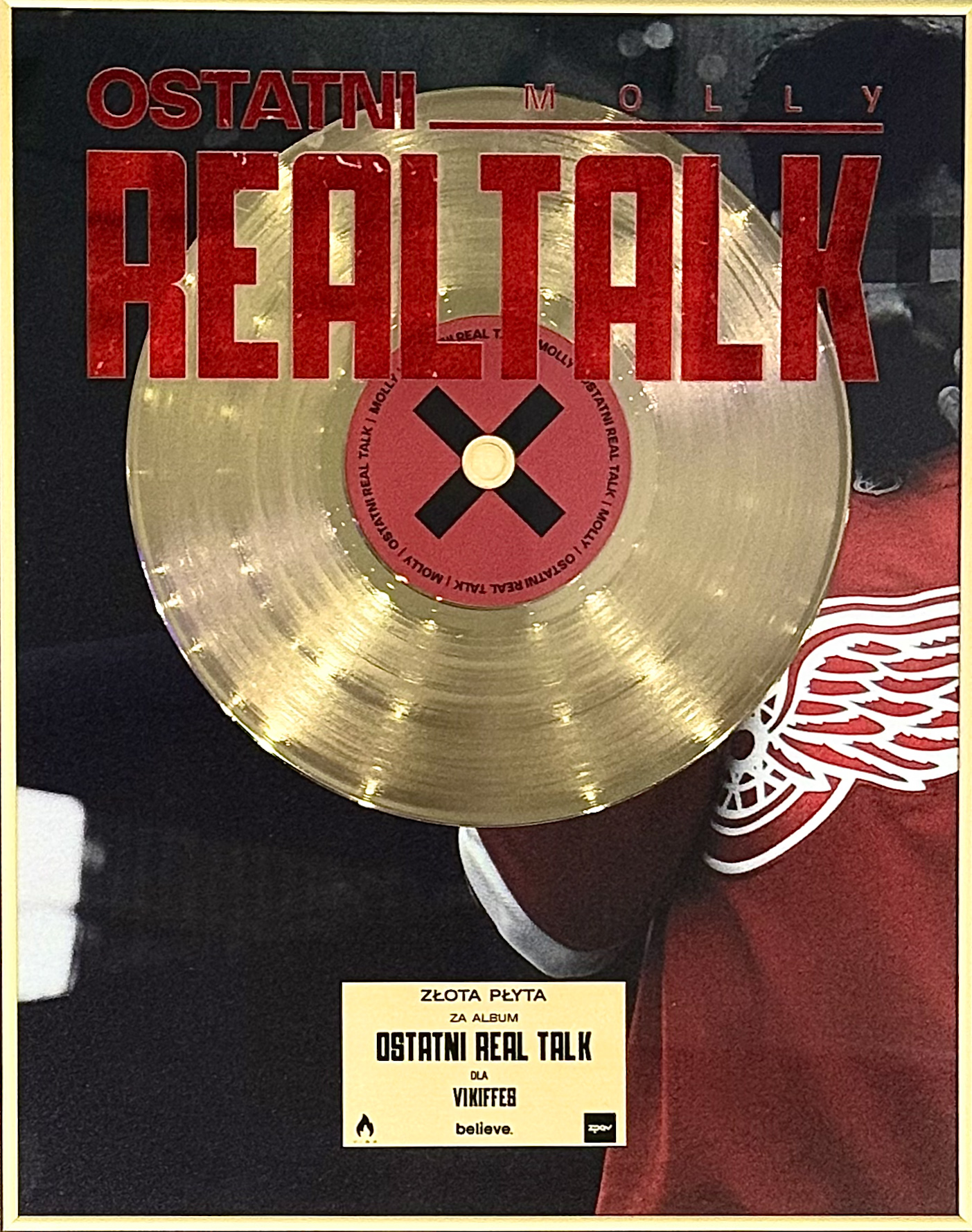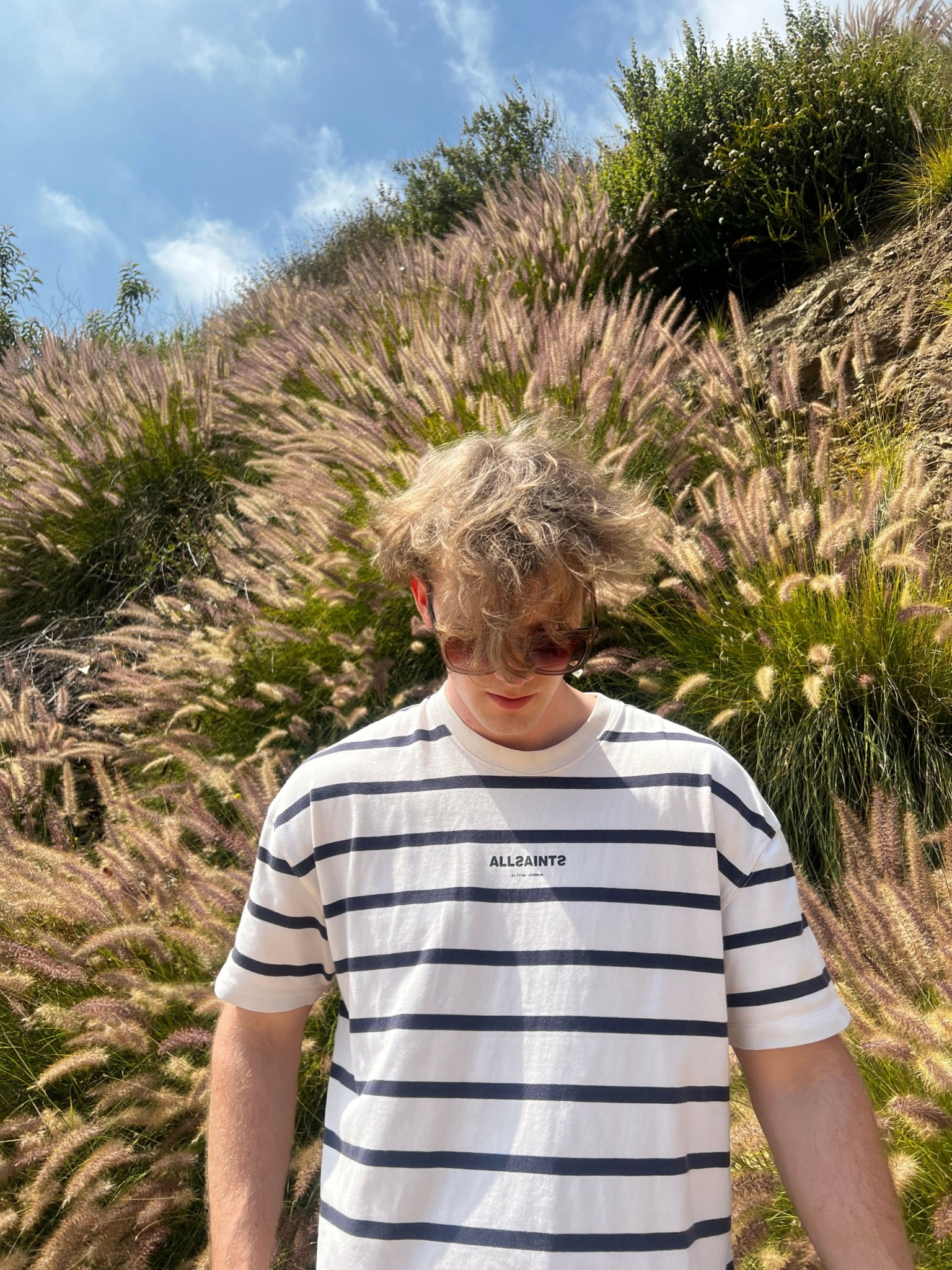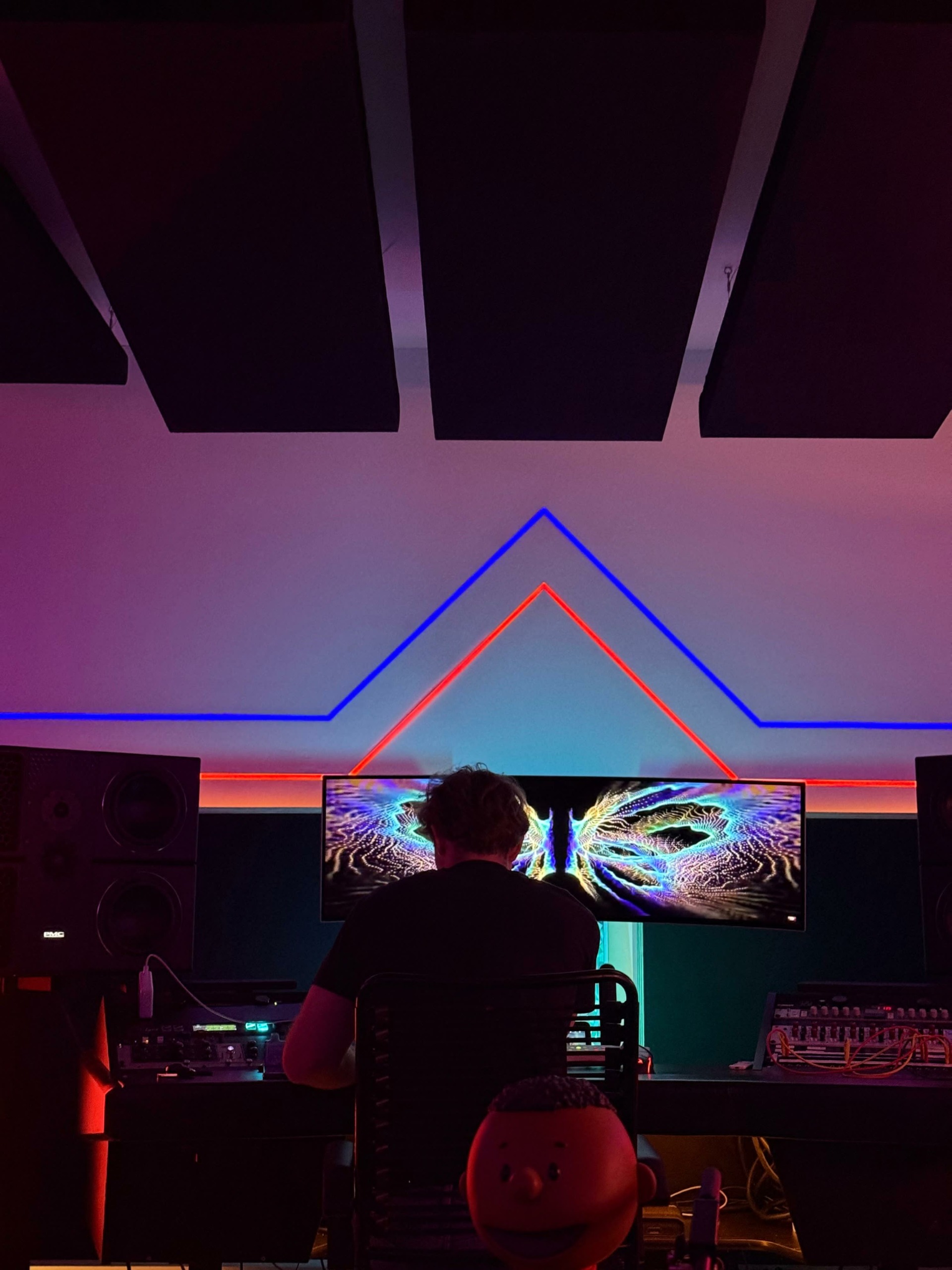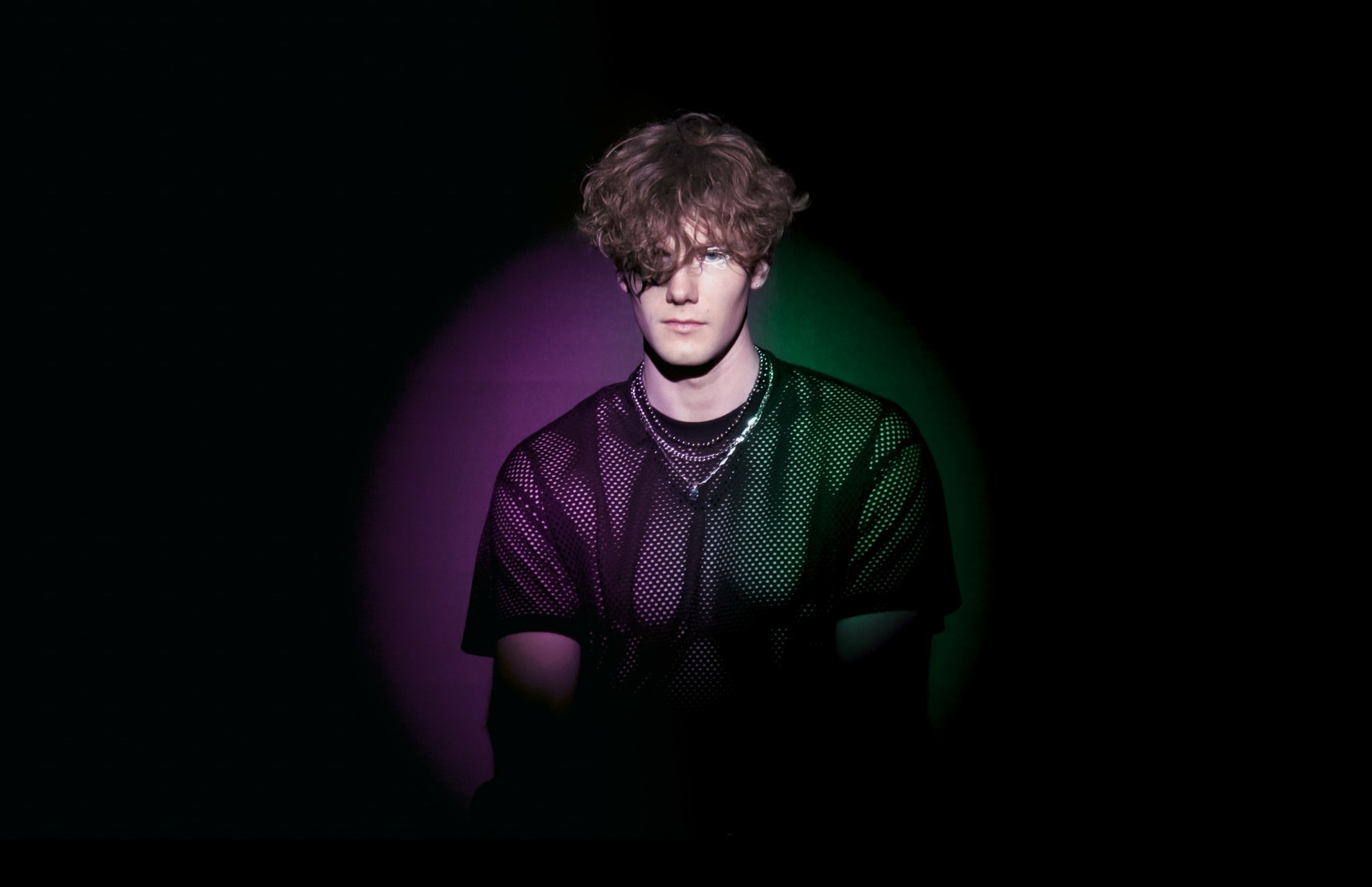We recently connected with Viktor Cich and have shared our conversation below.
Alright, Viktor thanks for taking the time to share your stories and insights with us today. Are you happier as a creative? Do you sometimes think about what it would be like to just have a regular job? Can you talk to us about how you think through these emotions?
Being an artist—especially a music producer and sound designer—is both a privilege and a challenge. There’s a deep sense of fulfillment in creating something out of nothing, shaping sounds and melodies that didn’t exist before, and knowing that your work has the power to inspire, move, or even change someone. But there’s also a weight that comes with it, an invisible burden that many outside the creative industry don’t fully see.
Creativity isn’t just about making music; it’s about being your own business, your own marketing team, your own accountant. There’s no set paycheck, no guaranteed stability. Your income depends entirely on your ability to produce, connect, and adapt. And in a world that often undervalues creative work, that can be exhausting.
I had one of those moments recently—where I questioned if this path was really worth it. The LA fires had just caused a string of session cancellations, leaving me with unexpected financial setbacks. I remember sitting in my workspace, staring at my DAW, feeling like the walls were closing in. It wasn’t just about the lost income; it was about how easily circumstances beyond my control could disrupt my livelihood.
That night, I thought about what it would be like to have a regular job. A steady paycheck. Paid time off. The ability to clock out and not have my mind constantly racing about the next project, the next opportunity, the next bill. I imagined the relief of stability—but I also imagined the absence of the thing that drives me.
Because at the end of the day, being an artist isn’t just what I do—it’s who I am. And while the uncertainty can be overwhelming, the idea of giving up my creative freedom feels even heavier. The world needs art, needs music, needs the things we create. And I believe that artists and creatives deserve to be valued just as much as anyone else in any other profession—if not more, because we are the ones who make life richer, more meaningful, more human.
So yes, I think about it sometimes. But I always come to the same conclusion: I’d rather face the struggles of being a creative than live a life where I’m not doing what I was meant to do.

As always, we appreciate you sharing your insights and we’ve got a few more questions for you, but before we get to all of that can you take a minute to introduce yourself and give our readers some of your back background and context?
I’m a music producer and sound designer with over seven years of experience, and my journey has taken me across different countries, cultures, and musical landscapes. I started my career in Warsaw, Poland, working with some of the biggest names in Polish rap. That was where I honed my craft, learning how to shape an artist’s vision into something real and impactful.
From there, I moved to London, where my focus shifted towards indie and alternative music. London was a completely different scene—raw, experimental, and filled with artists who were pushing boundaries. It gave me the chance to refine my versatility as a producer and taught me how to adapt to different creative approaches.
Eventually, I made my way to the U.S., first landing in New York to study at Berklee College of Music. The energy of the city was incredible, but I quickly realized that the industry there wasn’t quite the right fit for me—I needed something bigger, something that matched my ambition. That’s what led me to Los Angeles, where I finally felt like I belonged. The pace, the opportunities, the sheer creative energy—it was everything I had been looking for.
As an executive music producer, I don’t just make beats or mix tracks—I oversee the entire creative process. I work with artists from scratch, guiding the direction of their songs while making sure their vision stays at the center of it all. Communication is everything in this industry, and I pride myself on making sure the artist’s needs and ideas are not just heard, but fully realized.
One of the things that sets me apart is my ability to solve any problem thrown at me. Whether it’s finding the right sound, reworking a song to match an artist’s evolving vision, or assembling the perfect team of writers, instrumentalists, or even a full string quartet, I make sure that no creative barrier stands in the way of a great record. Over the years, I’ve built strong connections in the industry, so no matter what an artist needs, I can make it happen.
I work in multiple genres, but right now, my focus is on all kinds of Pop—from mainstream chart-ready tracks to darker, more experimental styles like Dark Pop, Glitch Pop, and Cunt-Pop. In addition to producing for artists, I also sell instrumental licenses on my website: vikiffes.pl, giving artists and creators access to high-quality production ready for their projects.
One of my proudest achievements so far is earning my first Gold record for an album by M0LLY, a Polish artist. That moment was huge for me—it was proof that years of hard work and dedication were paying off. But I’m not stopping there. My next goal is to get my first Gold record in the U.S., and I’m pushing harder than ever to make that happen.
If you’re an artist looking for someone who truly listens, someone who can bring your vision to life while handling all the moving parts behind the scenes, then let’s make something incredible together.

Do you think there is something that non-creatives might struggle to understand about your journey as a creative? Maybe you can shed some light?
A lot of people don’t take what we do seriously. They see music, art, and creative work as a hobby—something fun, something you do on the side. But the reality couldn’t be further from that. The sheer amount of willpower, resilience, and sacrifice it takes to be a creative is something most people can’t comprehend unless they’ve lived it.
Being an artist means constantly putting yourself out there, exposing your deepest thoughts and emotions to the world, only to get rejected—over and over again. It takes an insane level of mental strength to hear “no” a thousand times and still wake up the next day believing in yourself. The competition is brutal, the industry is unpredictable, and the pressure to constantly prove yourself never stops.
I’ve lost count of how many times I’ve heard “get a real job”, even from people close to me. Thankfully, my parents were always supportive, and that made a huge difference. But the doubt still came from other places. One of the hardest moments for me was with my ex-girlfriend. I always knew she loved me and cared about me in so many ways, but she wasn’t in the industry, and I could tell she didn’t always understand the challenges I was facing. It wasn’t her fault—she just didn’t know how to help or motivate me sometimes, and I know she really tried. But when you’re pouring your heart and soul into something as demanding as music, and the person closest to you doesn’t fully grasp what that world is like, it can create a feeling of disconnect.
I’m a music geek, and 99% of my friends are too. Music isn’t just something I do—it’s the way I experience life. That’s why I find it hard to connect with people who don’t listen to music or don’t have any relationship with it. It’s not about being judgmental; it’s just that music is my whole world, and I naturally gravitate towards people who share that passion.
One thing I do appreciate, though, is how creatives—no matter the medium—understand each other. Whether it’s musicians, fashion designers, contemporary artists, or filmmakers, we all speak the same language. We all know what it’s like to chase something bigger than ourselves, to struggle, to create against the odds. There’s a sense of community among creatives that I don’t think exists in the same way in other industries.
So if you’re reading this and you’re not in a creative field, but you have someone in your life who is—support them. Even if you don’t fully understand their path, just knowing you believe in them can make all the difference. And if you’re a creative who feels misunderstood, just know you’re not alone. The people who truly get you are out there, and the work you’re doing matters.

Are there any resources you wish you knew about earlier in your creative journey?
If there’s one thing I wish I had realized earlier, it’s the power of community. When you’re starting out, it’s easy to think you need to break into the biggest circles right away—to work with the biggest names, get that one huge co-sign, or land in rooms with industry giants. But the truth is, some of the most valuable opportunities are right next to you.
Look at the people around you—your local creative community, your friends, your peers. The things you can achieve just by growing together are insane. I’ve learned that sometimes, you’re just a handshake away from the person you want to work with. Instead of chasing a Beyoncé-level connection right away, focus on building relationships with the people already in your orbit. Some of the most successful creatives I know got where they are because they surrounded themselves with like-minded people who pushed them forward.
Your friends, collaborators, and the people who believe in you—they’re the ones who will help you level up. When they grow, they’ll take you with them, and vice versa. That’s how real careers are built—not just by chasing the biggest opportunity, but by investing in the people who are coming up with you.
So if I could give one piece of advice to my younger self, it would be: don’t underestimate the power of your community. The right connections aren’t always far away—you just have to pay attention and be open to growing together.
Contact Info:
- Website: https://vikiffes.pl
- Instagram: https://www.instagram.com/vikiffes/
- Linkedin: https://www.linkedin.com/in/viktor-cich-932970303/
- Other: Spotify: https://open.spotify.com/artist/7ilv9iKonR9oUdfONfAmXj?si=RK_ryt2OTa65mJgp5qXClA


Image Credits
JMKO
OnFilm


